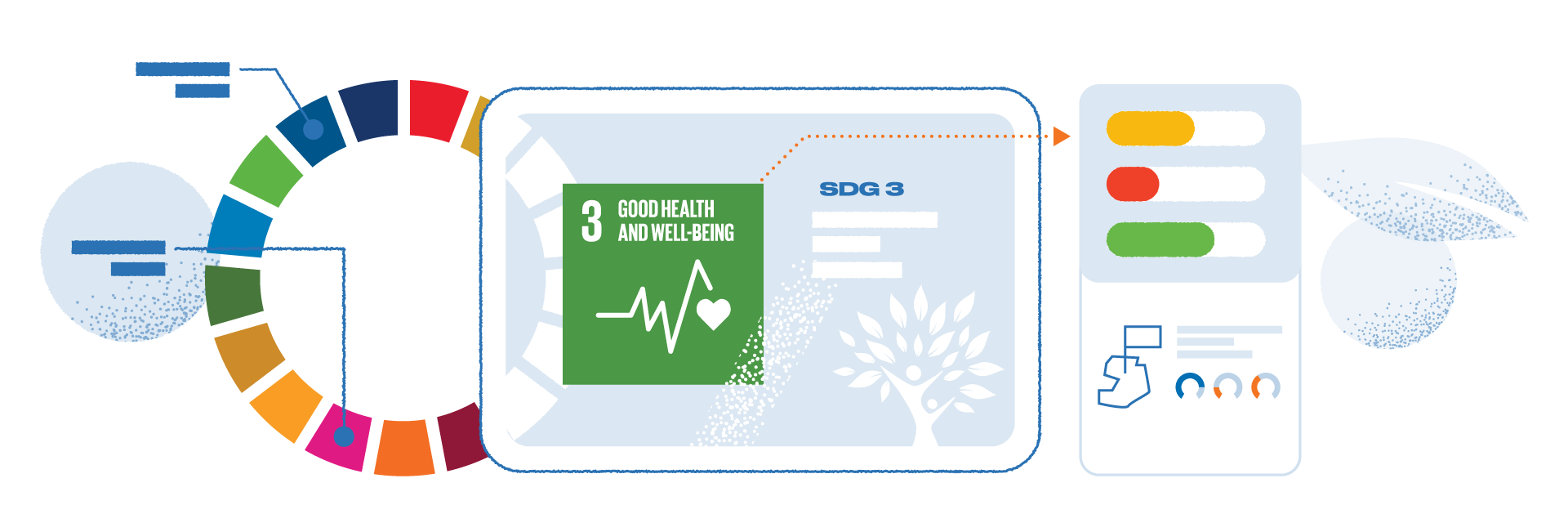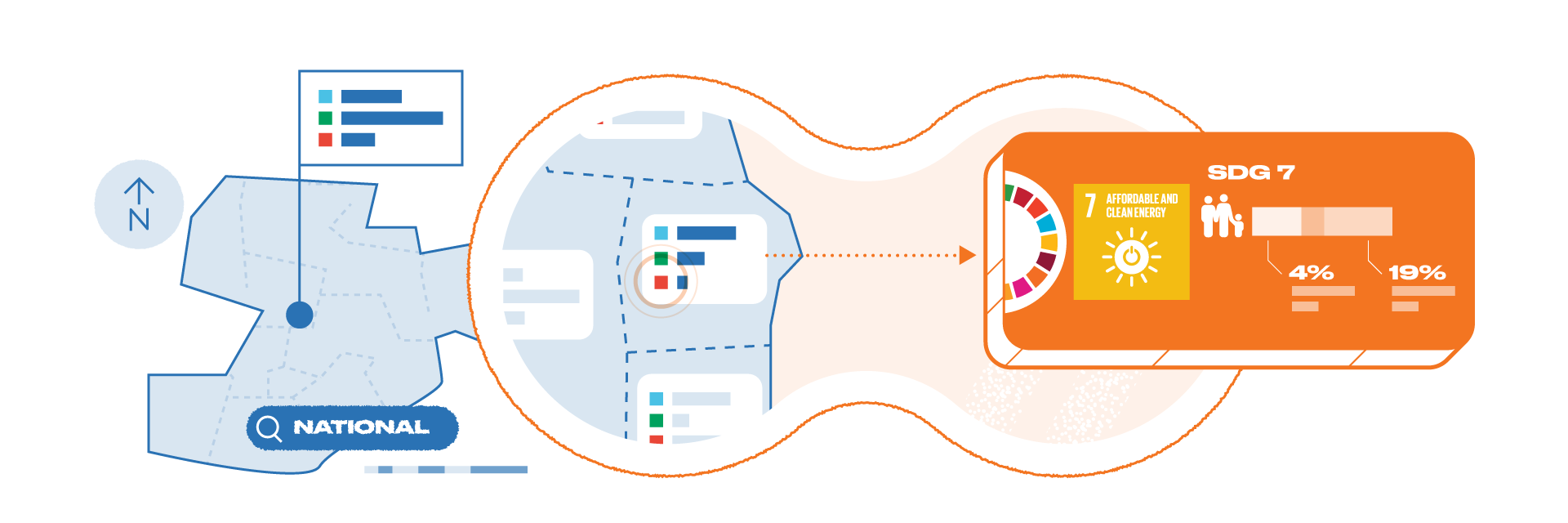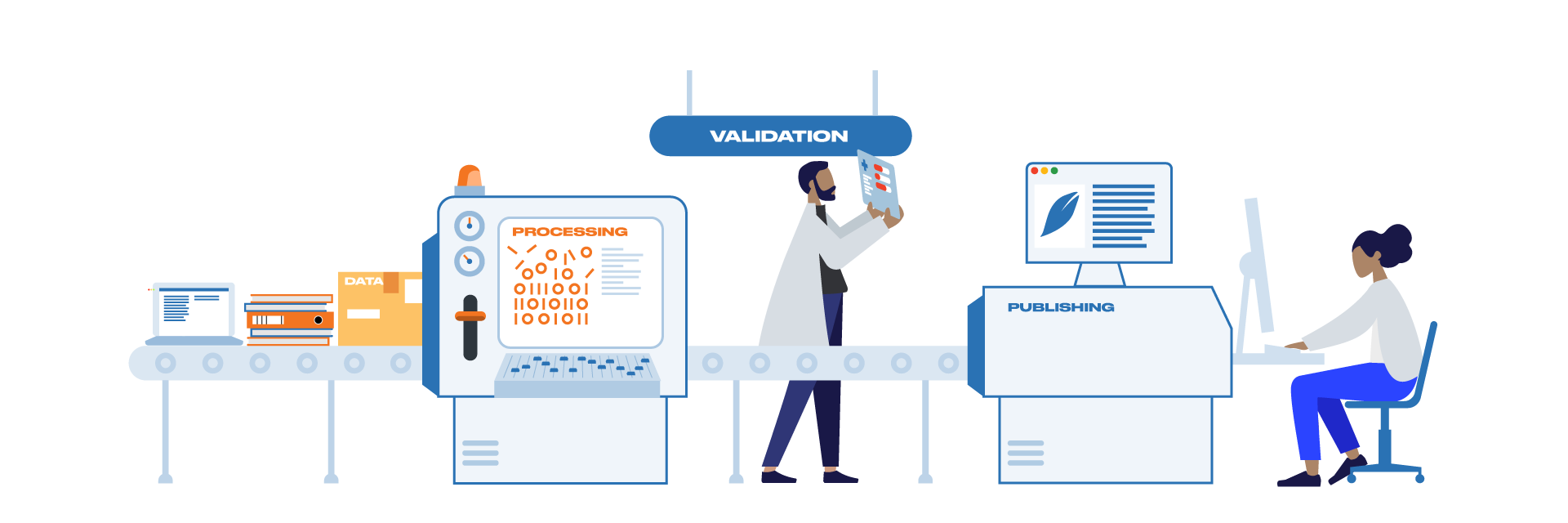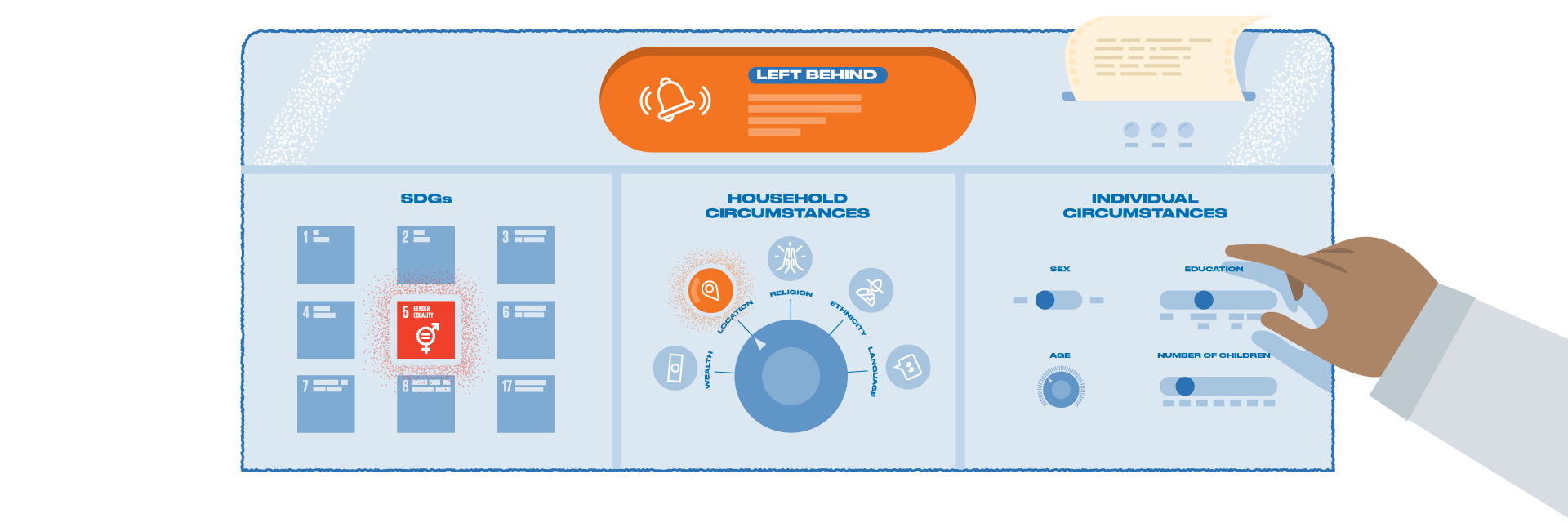Leaving No One Behind
Inequalities in SDGs
Country and Period Coverage
Data and Methodology





Media
Publications
News and Events
Events
Testimonials
The LNOB analysis is an evidence- and rights-based approach to informing the design and implementation of national policies and monitoring and reporting progress on SDGs. It is a tool that can be used by multiple stakeholders with an aim to reduce the gaps between the furthest behind and the furthest ahead in our society. I want to acknowledge the excellent job by ESCAP with its timely technical support and contribution to the analysis in the 1st and 2nd VNRs of Papua New Guinea."
The LNOB statistical training was an enlightening experience that gave us the tools to measure and analyze inequality at both national and sub-national levels. The R code tutorials and exposure to sophisticated methodologies like Classification and Regress Trees (CART) and the Dissimilarity index (D-index) were particularly useful in helping us to identify the groups that are furthest behind in achieving the SDGs. This will allow us to create data-driven policies that ensure equality of opportunity and support shared prosperity."
Let us embrace this occasion not just as a training but as a catalyst for change, a platform to strengthen our resolve, and a space to build lasting partnerships. May our collective endeavors during these two days propel us towards a future where no one is left behind."
ESCAP's two day LNOB workshop will train you as a statistician. Not only will you learn about the LNOB platform, but you will also learn about statistical tools. These tools will guide you on how to transform your data into information that everyone can visualize and understand."
I am pleased that ESCAP's technical training not only is building national capacity to do LNOB analysis but also training people in R statistical software. The R software will enable countries to re-analyze various census and survey data, which are multi-million dollar assets that can contribute new insights to complex questions going far beyond the original reports."
The LNOB platform can be a source of useful guidance for policymakers on how to contribute to monitoring SDG progress and acceleration, by identifying those who are furthest left behind groups and the circumstances under which they are. This will enable inclusive and sustainable development, leaving no one behind!"
The LNOB analysis provided by ESCAP can provide inclusive data for policymakers to craft interventions that are responsive to the needs of everyone, including the marginalized groups."
As we continue to work towards achieving the SDGs, it is essential that we all enhance our capacity to understand and implement a LNOB analysis. Because applying the LNOB principle in practice is not a voluntary exercise, it is not a choice but mandatory. In international human rights law, multiple grounds of discrimination are prohibited."
The LNOB platform is an evidence-based tool that gives us an opportunity to identify who is being left behind in basic needs and where they are now, and to support policy making to ensure no one is left behind."
ESCAP's LNOB surprises us all by providing evidence against preconceptions about who lacks access to basic opportunities. It helps us monitor gaps and inequality in SDG achievements."
The LNOB platform is an excellent starting point for designing truly inclusive development policies by identifying who is left behind in SDG indicators and what circumstances they share."
About Us
- +66 2 288-1234
- escap-lnob@un.org

